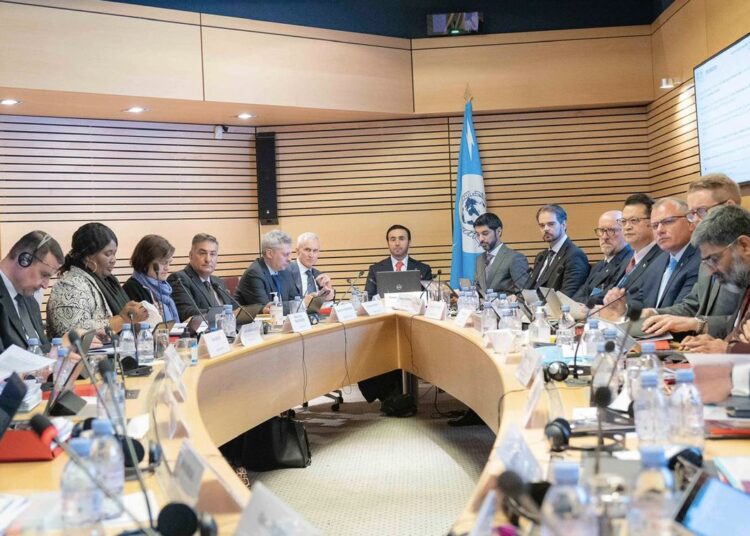April 4, 2024
A A

The Interpol Executive Committee concluded its 218th session in February 2023 in Lyon, France.
Abdullah Bozkurt/Stockholm
In another misuse of International Criminal Police Organization (Interpol) mechanisms, the Turkish government effectively lobbied to halt a collaborative project between Interpol and reputable UK-based research organization Conflict Armament Research (CAR). This action followed a damning report by CAR that traced explosive materials obtained by the Islamic State in Iraq and Syria (ISIS) back to Turkish firms.
The Turkish government’s endeavor to undermine a proposed project between Interpol and CAR was detailed in a recent report issued by Turkey’s Security Directorate General (Emniyet) in February and hailed as a success by Turkish authorities.
The 83-page report, acquired by Nordic Monitor, revealed that CAR had been flagged by the Turkish Foreign Ministry for an extended period subsequent to the organization’s investigation in February 2016, which exposed Turkish companies implicated in a fertilizer supply chain linked to ISIS.
During CAR’s two-year investigation into ISIS weapons in Iraq and Syria, it was discovered that the majority of ISIS improvised explosive devices (IEDs) consist of a blend of aluminum and nitrate-based fertilizers, such as ammonium nitrate. The report pointed to Turkey as “the most important choke point” for components utilized in ISIS’s IED manufacturing. These components include chemical precursors such as fertilizers as well as containers, detonating cords, cables and wires that were either produced or sold in Turkey before being acquired by ISIS in Iraq.
Established in 2011, CAR specializes in the documentation of weapons, ammunition and associated materials diverted to armed groups, including terrorist entities globally. Deploying field teams, the organization identifies weaponry and munitions, traces their origins and exposes vulnerabilities within supply chains and control systems. CAR boasts partnerships with prominent entities such as the European Union, United Nations, US State Department and the foreign ministries of the UK and Germany for the tracing of weapons.
Following its damning report, the organization attracted the ire of the Turkish government, resulting in strong opposition by Turkish government representatives to CAR’s proposed projects with intergovernmental organizations.
The proposal for collaboration aimed to facilitate data exchange between Interpol and CAR, thereby boosting efforts to trace supply chains associated with arms in conflict zones. This proposal was presented to the 13-member Interpol Executive Committee for discussion last year.
Upon instructions from the government, Turkish representative Selçuk Sevgel lobbied against the proposal at the Executive Committee and rallied the majority to decline the project. The proposal was subsequently rejected by a vote of 9 to 3, preventing its advancement to the General Assembly.
It came to light that the Turkish Foreign Ministry drafted a confidential report on CAR, asserting that the organization “publishes reports containing unfounded allegations against our country, and its reports based on unreliable sources could potentially harm the activities of our critical sector companies.” The ministry further recommended “preventing, if possible, the establishment of an official relationship with Interpol.”
Indeed, Sevgel, a police chief appointed to the Executive Committee for the 2021-2024 term, executed precisely what was outlined in the foreign ministry’s report, effectively terminating the project.
Turkey’s misuse of its position at Interpol is not unprecedented. Between 2016 and 2021, Interpol rejected 839 Red Notice submissions by Turkey for members of the Gülen movement, a group critical of the government of President Recep Tayyip Erdogan. Interpol cited violations of its rules as the basis for refusal and urged Turkey to refrain from resubmitting similar requests.
No comments:
Post a Comment